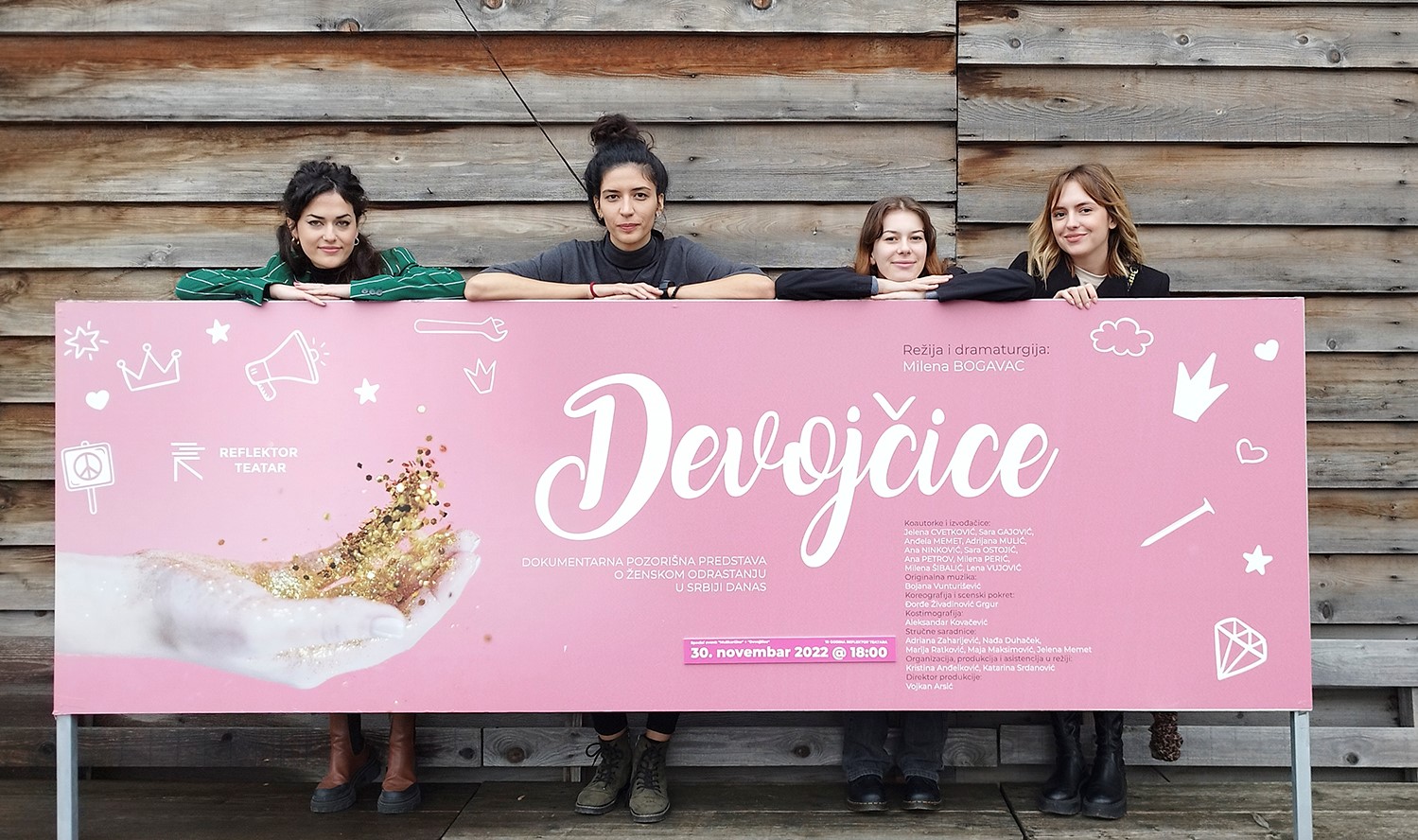
You can't because you're a girl
Ten girls, one stage, and the desire to make things a bit better.
|03.02.2023
|

Dejan Kožul
Dejan Kožul is a journalist working for various media in Yugoslav space (Novosti, Lupiga, FTV, etc). For more than eight years he was the editor and anchor for the radio show KUPER which was broadcast on BH Radio, Radio Republika (Novi Sad), Radio Rojc (Pula), KLFM (Split), and Radio Apart (Beograd). He describes it as the territory with the most freedom and the ability to broadcast because there are no taboos.
This story was originally written in Serbian.